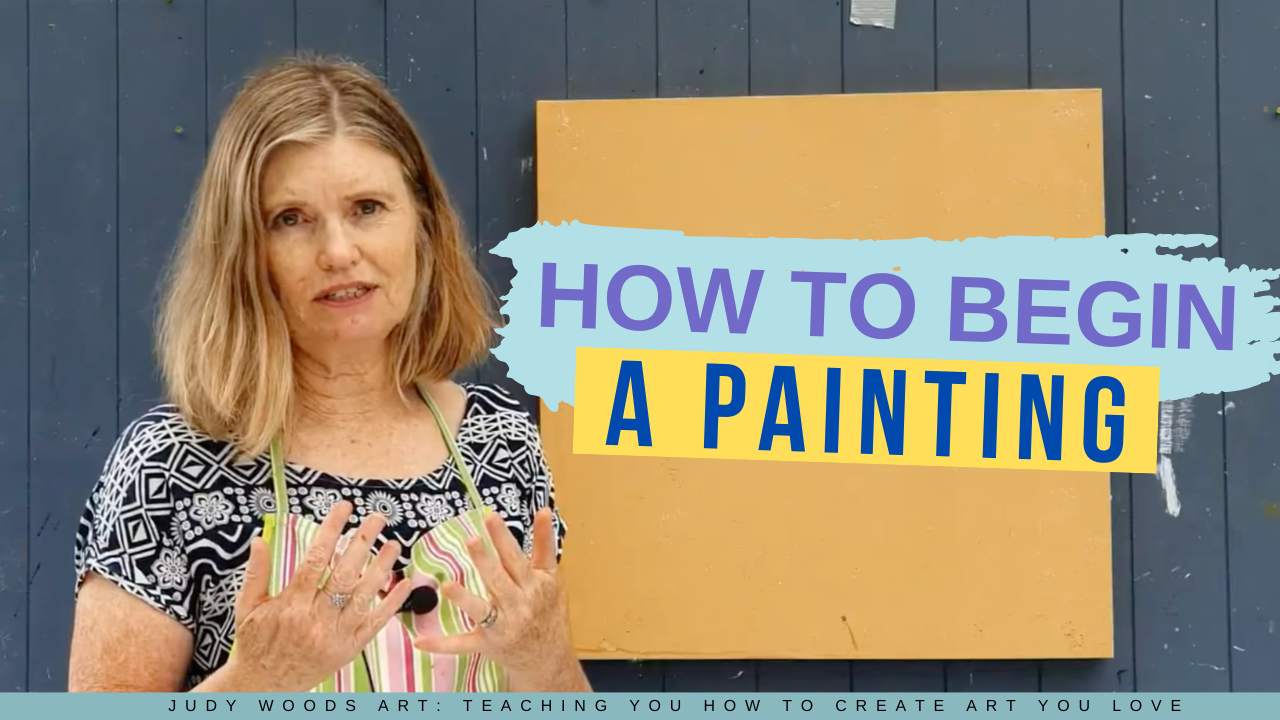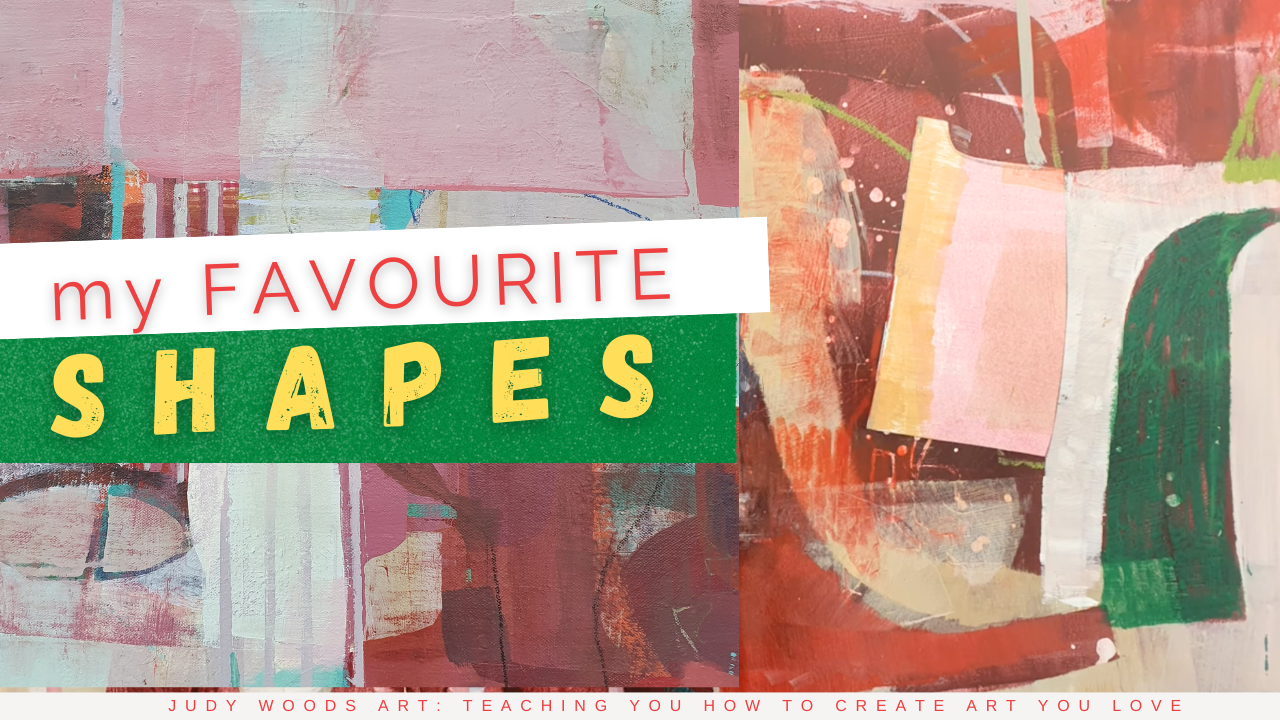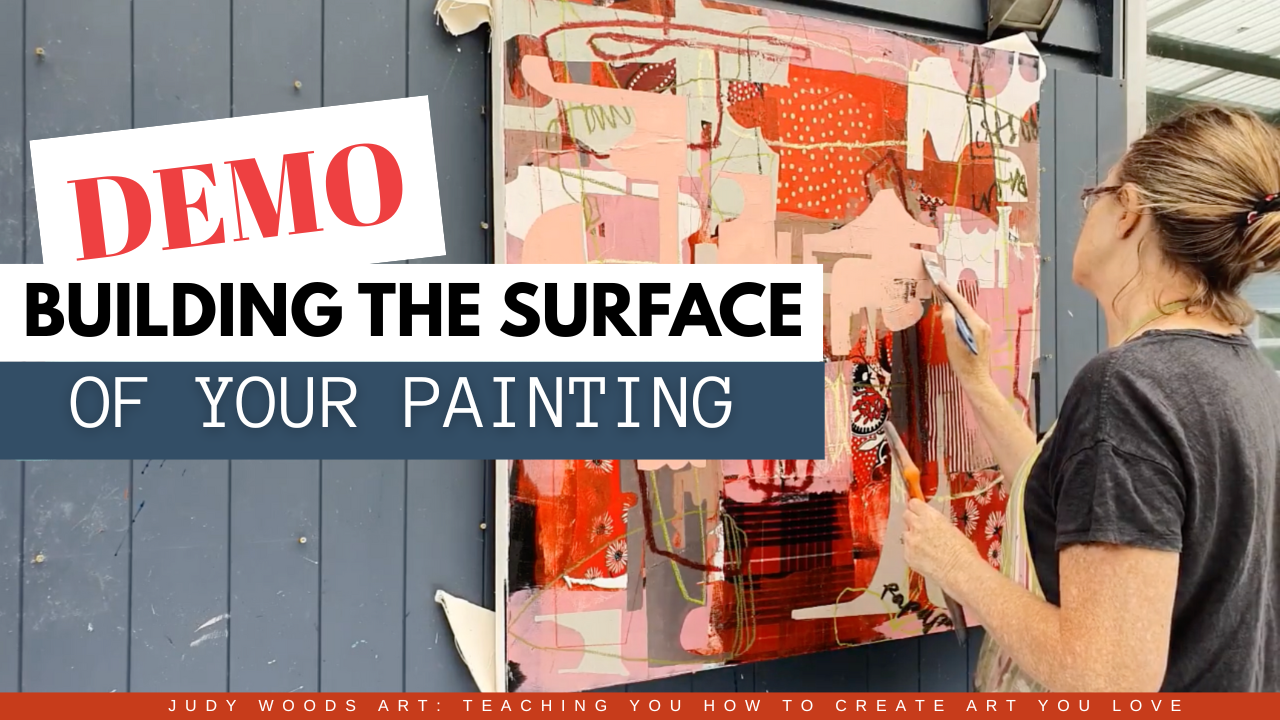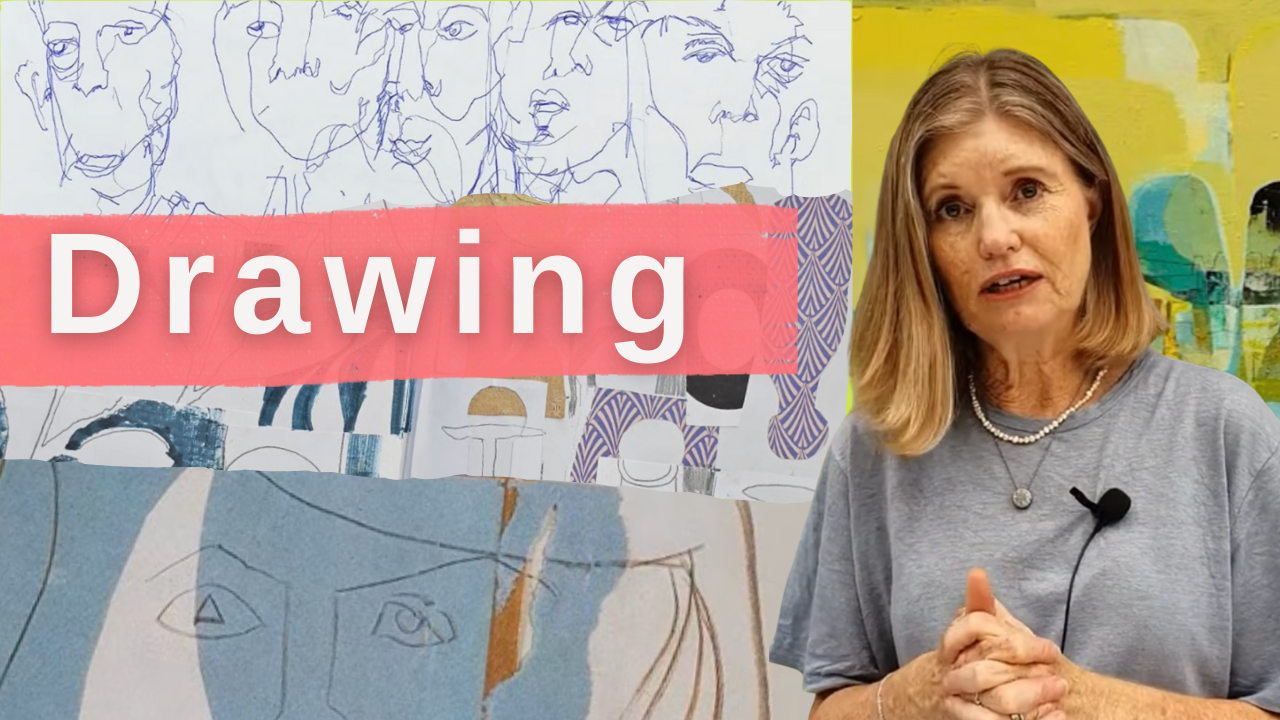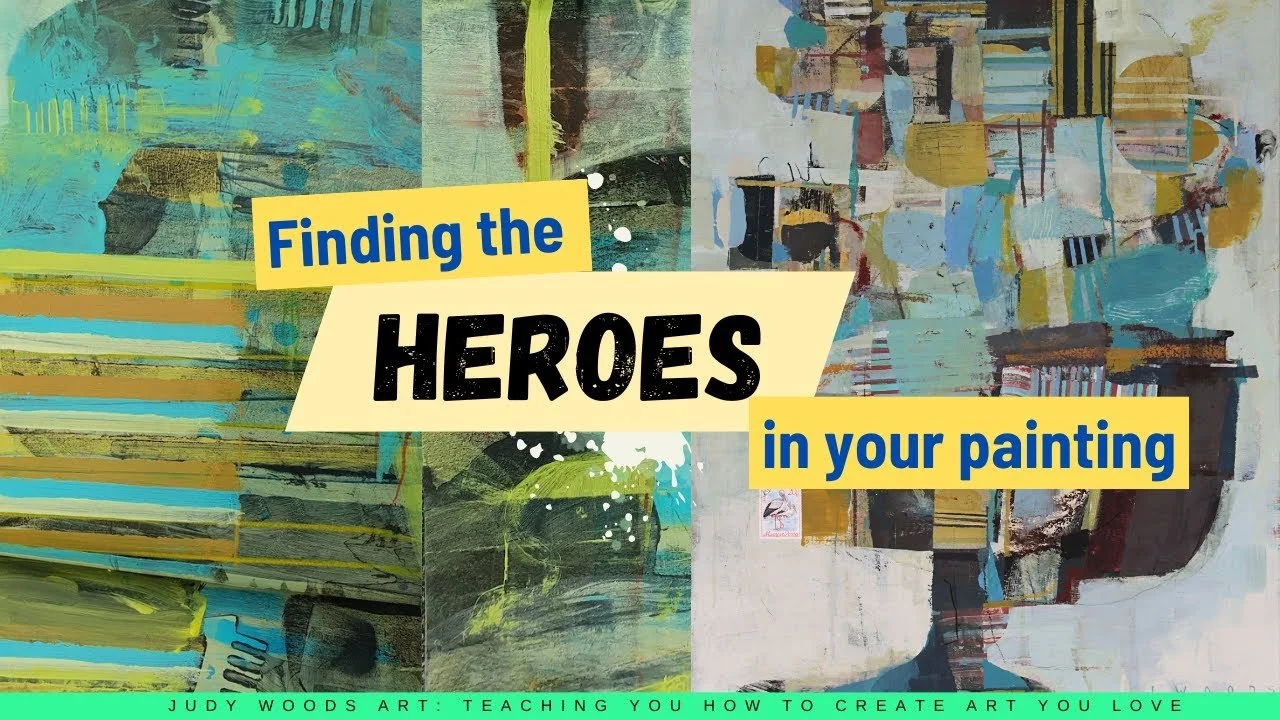Abstract Painting with Shapes
Building The Surface of An Abstract Painting
In this week's Vlog, I continue with the progress of the painting which I started last week. I'm adding the layers and building the surface using different tools to apply paint and get a range of effects. Watch as I share with you the process of building my current work as it's starting to get exciting.
The Value of Drawing
In this Vlog I talk about this process and show examples of Picasso's drawings from one of my favourite artbooks. 'The Sketchbooks of Picasso'. He of course didn't have a SMART phone or Photoshop to help him nut out design issues - he used pencil and paper. And his small composition studies are the perfect example of this type of drawing. There are also suggestions for how you could use these ideas in your own practice and some examples of my drawing to demonstrate.
How to Find the Colour and Shape Heroes in Your Abstract Painting
In this week's Vlog I have made a small painting in my sketchbook following my process of building up layers. But what it demonstrates as well as building an interesting surface, and the introduction of the use of stencils is how to give strength to the hero's in the painting. Prioritizing the colour heroes as well as the shapes and elements in the painting that are important to the success of the composition.
Mixedmedia Drawing
Knowing Your Painting Style
My Painting Game
When life gets in the way of our art, it’s easy to lose our Mojo, find ourselves procrastinating and doubting our ability. Here’s a simple way to get back into your work as an artist and find the joy and love again. Watch as I explain why this happens and how to overcome negative feelings by playing a simple game with paint.
Playing with Collage
Painting Botanicals
Quick and Easy Design Tutorial with Collage
Express yourself with this inspiring mix of collage, drawing, and painting. Endless fun while exploring design! Here's what I used to make these collages:
- 110gsm paper previously prepared with paint
- Collage detritus and other papers prepared with paint
- Acrylic paint
- white, black and a couple of colours
- stencils
- Water soluble crayons
Using Thick and Thin Paint to Create a Stunning Painting Surface
Shapes In Your Painting
This week in my Vlog I'm talking about digging into your past and finding things in your memories that can be included in your Art to make it more authentic. Finding SHAPES that you enjoy and that for some reason have some resonance for you, and how including these in your work can build connections with others. That's where the Witches Britches come in...
Step by Step Introduction to Creating an Abstract Painting
Underpinning my process of abstract painting is playing with OPPOSITES. In this demonstration I show you how every step I take is in contrast - or opposite - to the previous step. This is a great rule of thumb as it means you are never stuck with what to do next. Ask yourself: What have I just done? What is opposite or different to that? Watch the video to the end to see how the painting finished up following this process.
1 Hour Art: Creating Layers Of Mixed Media
I've recorded this video to show you my process for painting and making a finished piece in my sketchbook. I create my work, big or small by building in layers, and in this demonstration you will see the full process reduced down to creating an artwork in less than an hour. Don’t forget to download my Markmaking & Painting Promptsheet to bring over 50+ ideas into your studio.
Start with Collage To Make Abstract Painting
The right mindset and the first moves to ensure success
Starting a painting can be daunting - that blank canvas is like an empty stage waiting for brilliance to arrive! This can be a huge hurdle to overcome when expectations are high. So in this video I’ll share with you how to adopt the right mindset to allow yourself to freely create your best work, and what are some of the first steps you could take on that blank canvas to lead to success. Watch and then let yourself loose on your next painting journey!
2 Tricks to Save Your Ugly Abstract Painting
It happens - sometimes a painting goes through a very ugly phase and a lot of artists give up and start again. In this video I go through this process with you - I create an ugly painting, and then I show you two ways to save it. And it’s amazing how quickly it becomes a fun, playful painting with a cohesive structure - instead of the chaotic crazy mess it was before.
How to Edit your abstract Painting
Many of my students decide their paintings are too busy but then get stuck editing them. In this video I demonstrate the thought process in deciding what to take away and what to leave behind and how it’s all based on DIFFERENCES. Creating differences and then deciding which areas you like the best and reducing distractions around these areas, leaving them to be the focal areas in the painting. By doing this successfully you calm the painting and it becomes less ‘busy’.


